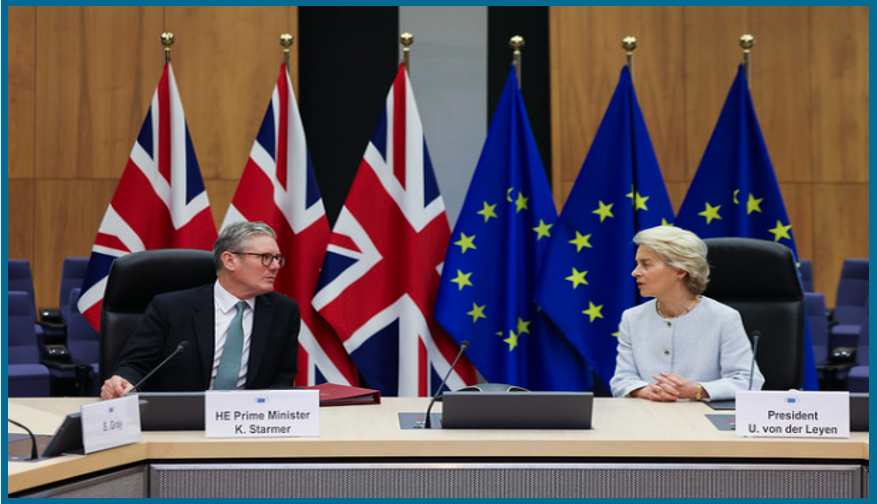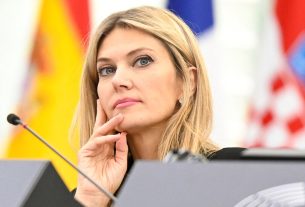London – May 2025 — In a significant step toward rebuilding relations nearly five years after Brexit, top European Union leaders will meet with UK Prime Minister Keir Starmer in London on Monday to advance a long-anticipated defence and security pact, and possibly open the door to broader cooperation.
The meeting at Lancaster House marks the first high-level summit of its kind since the UK’s departure from the EU and reflects growing political momentum for a Brexit reset under Starmer’s Labour government.
European Council President António Costa, European Commission President Ursula von der Leyen, and EU foreign policy chief Kaja Kallas will lead the EU delegation. Their talks with the UK are expected to focus on finalising a bilateral defence agreement, while also tackling complex post-Brexit trade and mobility issues.
“The UK’s security is inseparable from Europe’s,” Starmer said recently. “That’s why deeper cooperation with the EU is essential to our national interest.”
Security Pact to Unlock Strategic Access
A key outcome of the meeting could be a UK-EU defence and security pact that would allow British companies access to joint EU military and defence projects under the Security Action for Europe (SAFE) programme — a €150 billion initiative aimed at boosting European defence capacity and resilience.
Both sides have expressed urgency given the current geopolitical context, including heightened tensions with Russia and challenges in the Middle East. Starmer made a formal security agreement with the EU a pillar of his party’s manifesto during the recent general election.
Diverging Demands on Trade and Mobility
However, despite common ground on defence, deeper frictions remain in other areas. The UK is pressing for eased sanitary and phytosanitary (SPS) checks on food, animal, and agricultural products, citing bureaucratic burdens on British exporters.
The EU, in return, wants the UK to align more closely with its SPS regulations — a move that would likely involve oversight by the European Court of Justice (ECJ), a politically sensitive issue for many in Britain.
In parallel, the EU is pushing for the revival of a youth mobility scheme that would allow citizens aged 18 to 30 to live, work, and study across the Channel. The UK has so far approached the idea cautiously, citing immigration concerns, although officials have hinted at possible compromises.
Another major hurdle is fishing rights, a recurring flashpoint in Brexit negotiations. The EU is seeking extended access to UK waters for European fleets in exchange for flexibility on food import checks — an offer London is evaluating carefully.
A Delicate Balancing Act
While both parties signal a desire for improved ties, analysts caution that the talks could still stall if neither side is willing to concede on key regulatory or sovereignty concerns.
“Starmer wants a reset, but Brussels wants guarantees,” said Dr. Elena Martin, an EU-UK relations expert at King’s College London. “The political will is there — but implementation remains a minefield.”
Still, Monday’s summit is being hailed as a diplomatic milestone, with hopes that it will lay the groundwork for more structured cooperation in trade, migration, science, and climate — even within the constraints of the existing Brexit settlement.
As the UK and EU revisit the contours of their future relationship, the outcome of these discussions could redefine how both sides manage cooperation without full political integration — a model that may shape other third-party EU relationships going forward.
Prime Minister Keir Starmer and EC President Ursula von der Leyen at 10 Downing Street Picture by Simon Dawson for Number 10



